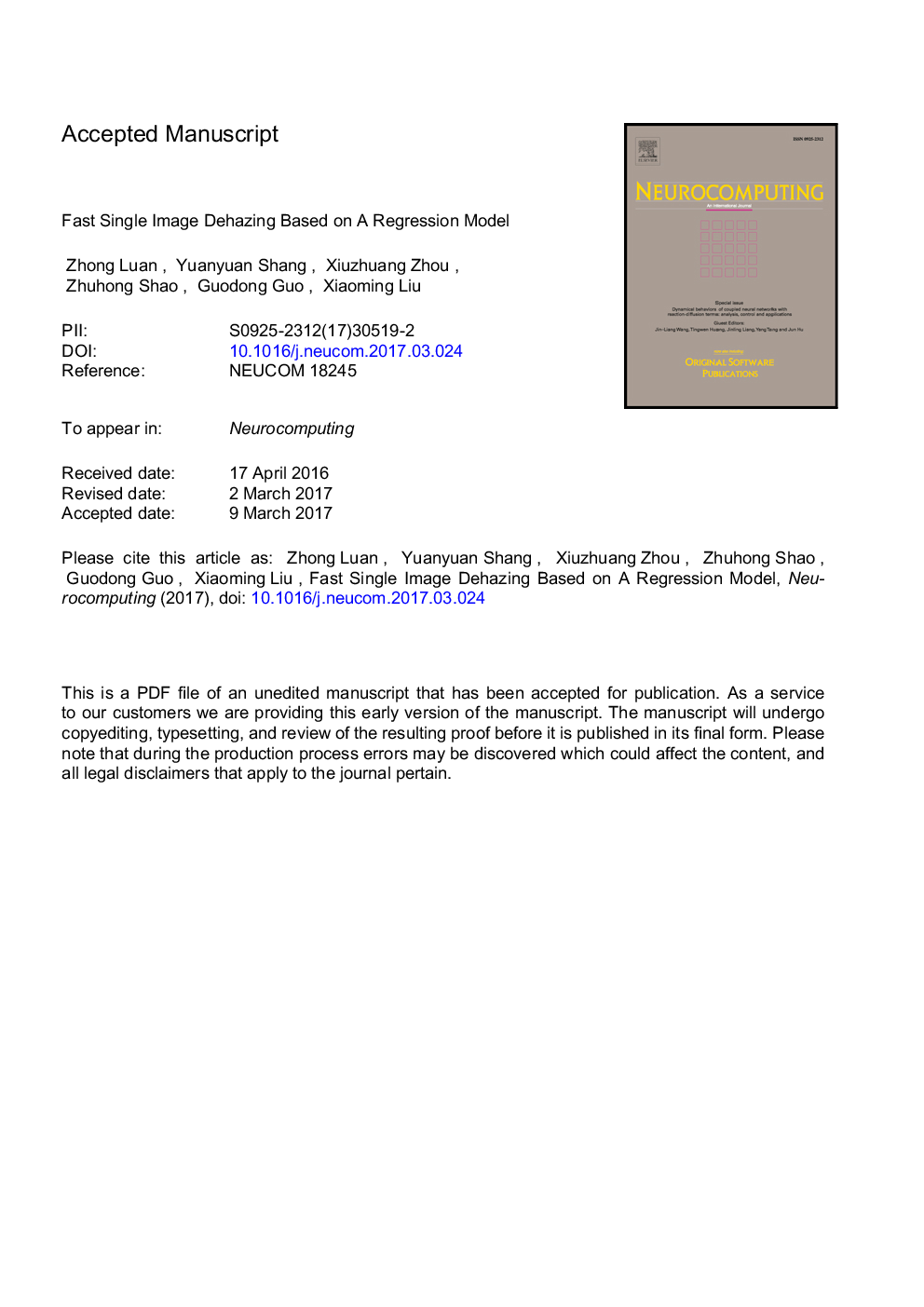| Article ID | Journal | Published Year | Pages | File Type |
|---|---|---|---|---|
| 4947442 | Neurocomputing | 2017 | 35 Pages |
Abstract
Given that single image dehazing is an ill-posed problem, it can be challenging to control the enhancement of haze images. In this paper, we propose a fast and accurate dehazing algorithm based on a learning framework. Using randomly generated training samples, we tackle the difficult problem of sampling haze/clear image pairs. Seven haze-relevant features based on image quality are extracted and analyzed. A regression model is learned using support vector regression (SVR), which can estimate the transmission map accurately. Further, a new method is presented to estimate the dynamic atmospheric light, which improves the performance in the sky and shadow regions. Experimental results demonstrate that the proposed approach has a lower computational complexity, and the dehazing results are visually appealing even on extremely challenging photos, such as street views, thick fog, and sky regions. Subjective analysis and objective quality assessments demonstrate that, the proposed method generates superior results than the state-of-the-art methods.
Keywords
Related Topics
Physical Sciences and Engineering
Computer Science
Artificial Intelligence
Authors
Luan Zhong, Shang Yuanyuan, Zhou Xiuzhuang, Shao Zhuhong, Guo Guodong, Liu Xiaoming,
